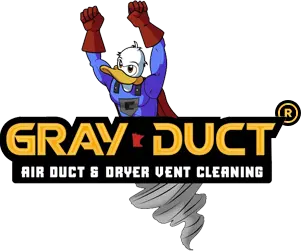As a homeowner, ensuring the efficiency and performance of your heating system is crucial to maintaining a comfortable and safe living environment during colder months. A furnace usually lasts for approximately 15-20 years, but over time, its efficiency starts to decline, leading to increased energy consumption and compromised comfort levels. Recognizing the signs of a failing furnace is essential for timely replacement, which can benefit your home’s energy efficiency, overall comfort, and safety.
Some critical signs that indicate you may need a furnace replacement include frequent repairs, inconsistent heating, rising energy bills, or a furnace that has surpassed its expected lifespan. Additionally, older furnaces, particularly those over 15 years old, may have outdated technology, leading to reduced efficiency and increased energy consumption as well as high operational and maintenance costs. By investing in a new furnace system, you can make your home more energy-efficient, save on utility bills, and maintain a comfortable living environment for you and your family.
Telltale Signs Your Furnace Needs Replacement
1. Frequent Repairs
If you find that your furnace requires frequent repairs or encounters performance issues regularly, it is a strong indication that your heating system is reaching the end of its service life. Continually repairing an aging furnace may not be cost-effective in the long run, as these expenses are better invested in a new, more efficient system.
2. Inconsistent Heating
An older furnace may struggle to provide consistent heating throughout your home, leading to uncomfortable and fluctuating temperatures. If you notice hot and cold spots in different areas of your home, it is a visible sign that your furnace may no longer perform at its best and require replacement.
3. Rising Energy Bills
As furnaces age, they lose efficiency, which consequently results in higher energy consumption and increased utility bills. If your home’s energy bills are consistently rising without any significant changes in your usage patterns, it is a sign that your furnace’s efficiency is deteriorating.
4. Exceeded Lifespan
If your furnace has been in service for over 15 years and you begin to experience any of the aforementioned issues, consider having it evaluated for possible replacement. Furnaces typically last around 15-20 years, and older models can be less energy-efficient and less reliable, posing potential risks to your home’s comfort and safety.
Why Timely Furnace Replacement Is Crucial
1. Improved Energy Efficiency
Replacing your furnace with a new, more efficient model can dramatically reduce your energy consumption and slash your monthly utility bills. Modern furnace systems are designed to be more eco-friendly, with advanced technology to optimize heating performance and efficiency.
2. Enhanced Safety
Older furnaces can pose safety risks, such as the potential release of carbon monoxide gas or fire hazards due to malfunctioning components. By investing in a new furnace, you eliminate these risks and safeguard your home, ensuring a safe living environment for you and your family.
3. Increased Home Comfort
Replacing your aging furnace results in improved temperature consistency and home comfort. A new heating system can provide more even heat distribution and better indoor air quality, contributing to overall satisfaction with your home’s living conditions.
Factors to Consider When Choosing a New Furnace
1. Fuel Type
Consider the type of fuel your current furnace uses and whether or not switching to a different fuel source may be more cost-effective and efficient for your home. Common fuel types include natural gas, propane, heating oil, and electricity.
2. Furnace Efficiency
Evaluate the efficiency ratings of potential replacement furnaces. High-efficiency models typically have a higher initial cost but can save you money over time due to their reduced energy consumption. Consult our professionals to assess the best furnace efficiency for your home.
3. Size and Installation
Ensure proper sizing of the new furnace to match the heating needs of your home. An improperly sized furnace can result in inadequate heating or energy waste. Additionally, selecting a professional furnace service for installation is essential for your new system’s reliability, longevity, and efficiency.
Partnering with a Professional Heating Service
Entrusting your furnace replacement project to a professional heating service can ensure the best outcome and smooth installation process. Our experienced technicians at Gray Duct Technologies are well-versed in evaluating your home’s heating requirements, recommending the right furnace system, and handling the installation with precision and care.
Conclusion
Recognizing the signs that your furnace needs replacement and taking timely action is vital for maintaining a comfortable, safe, and energy-efficient living environment. By investing in a new heating system, you can enjoy better comfort and reduce energy consumption, benefiting both your wallet and the environment.
Our team at Gray Duct Technologies is committed to providing you with exceptional furnace replacement services tailored to your home’s unique needs. Contact us today for a comprehensive consultation and let our skilled professionals guide you through the process, ensuring you experience the full benefits of a new, efficient furnace system.



